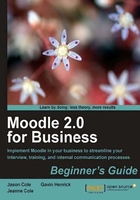
Some points to keep in mind
As already discussed, there are a wide range of roles in an organization which require adequate product knowledge to be effective in supporting the rollout of a product.
The sales force needs access to up-to-date product knowledge, descriptions, and benefits, so they can be effective in providing solutions to existing and new customers.
The support staff needs access to not only product knowledge used in sales, but also a deeper knowledge in other areas so that they can respond effectively to internal and external queries.
The finance department needs access to the underlying principles of the product, the costs of creation, delivery, and support, so they can manage and understand the impact to the bottom line.
The marketing staff needs access to the whole range of product knowledge to deliver supporting advertising and promotion.
The end users need product training on how to use the product effectively.
While going through each of the sections, keep in mind all of these different target audiences and how this could work for them as well.
To cater for this diverse set of constituents, you have two options:
- Create a different Moodle course for each target audience
- Use the Moodle topic structure to allow each role to focus just on their needs
In this section we will implement the second option, creating a course which takes advantage of the new navigation options in Moodle 2.0 by focusing on just one topic at a time.
In previous chapters we have touched on adding in resources and uploading content files to the course. So we won't be covering this during the rest of this chapter. We will focus on laying out the course in a structured manner, and on implementing three activities which help support product knowledge learning.
The sample course outline will be available throughout 2011 for all purchasers of the book on http://www.moodleforbusiness.com/.